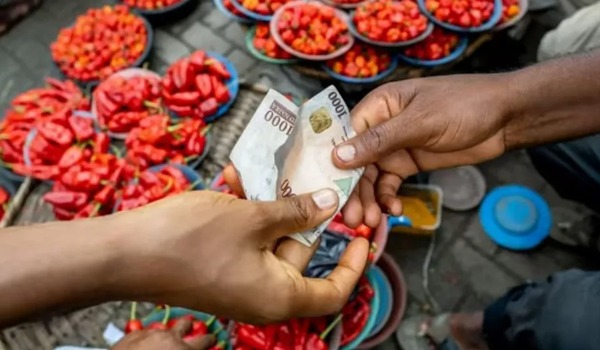Nigeria’s Commodity Inflation: Stop intimidating traders, businesses – CPPE tells FCCPC
 The Centre for the Promotion of Private Enterprise, CPPE has urged the Federal Competition and Consumer Protection Commission to avoid a price control mindset.
The Centre for the Promotion of Private Enterprise, CPPE has urged the Federal Competition and Consumer Protection Commission to avoid a price control mindset.
The Director of CPPE, Dr Muda Yusuf disclosed this in a statement on Sunday.
The CPPE comments come days after FCCPC issued a month ultimatum to traders, and businesses to crash the prices of goods.
Reacting, CPPE said the disproportionate focus of FCCPC on the retail segment of the economy calls for concern.
The economic think-tank group stressed that Consumer protection is not about directly seeking to control prices at the retail end of the supply chain.
“The Federal Competition and Consumer Protection Commission [FCCPC] appears to be unwittingly transforming into a price control agency rather than a consumer protection commission.
“The disproportionate focus of the commission on the retail segment of the economy and pricing issues underscores this assertion.
“The core mandate of the commission is the creation of a robust competition framework across sectors and protection of consumer rights and interests. Consumer protection is not about directly seeking to control prices at the retail end of the supply chain. This is why the CPPE is concerned about the approach, methodology, targeting and the recent threats by the FCCPC to market leaders, traders and supermarket owners.
“The commission seems to be fighting the symptoms rather than dealing with the causes of the current inflationary pressure in the economy. Even then, the core mandate of the commission is not to fight inflation. The fiscal and monetary authorities are statutorily responsible for macroeconomic policy issues and are better placed to deal with the challenge of high prices.
“It has been proven, theoretically and empirically, that the best way to protect consumers from exploitation is to diligently promote competition across sectors. Our experience with the telecoms sector amply validates this position. The emphasis should not be on pricing but on deepening the culture and practice of competition and a level playing field for all investors. Intense competition makes profiteering difficult and diminishes the chances of exploitation of consumers. When consumers have choices, it is difficult to exploit them.
“The retail sector of the economy is characterized by a multitude of players. There are an estimated eight million retailers in the trade sector of the Nigerian economy. There are thousands of supermarkets, departmental stores and markets across the country. The higher the number of players in a sector the more competitive the operating environment becomes and the more difficult it becomes for profiteering to take place.
“The truth is that the retail segment of the economy is the least vulnerable to price gouging or consumer exploitation on a sustainable basis, contrary to the thinking of the commission. They do not have the monopoly powers to influence prices or perpetuate profiteering sustainably. Besides, many of them are dealing in perishable items which makes supply manipulation difficult because of the inherent pressure for speedy disposal of the products.
“The reality is that the risk of profiteering increases with monopoly powers. This is why the attention of the commission should be focused on creating a good competition framework to deepen competition across sectors.
“The commission needs a proper comprehension of the dynamics of pricing and the key drivers of inflation. These factors include the naira exchange rate depreciation, high energy cost, high cost of logistics, seasonality of food production, high cost of funds, extortions on the highways, high post-harvest losses, high cargo clearing cost, the impact of the insecurity on food production, climate change and global factors disrupting supply chains.
“Meanwhile, the CPPE appeals to the FCCPC to refrain from further intimidation of the operators in the retail sector of the economy, most of whom are micro and small businesses, with many in the informal sector”, CPPE stated.













